My 5 best books of 2019
by John Browne, on Dec 20, 2019 12:07:56 PM
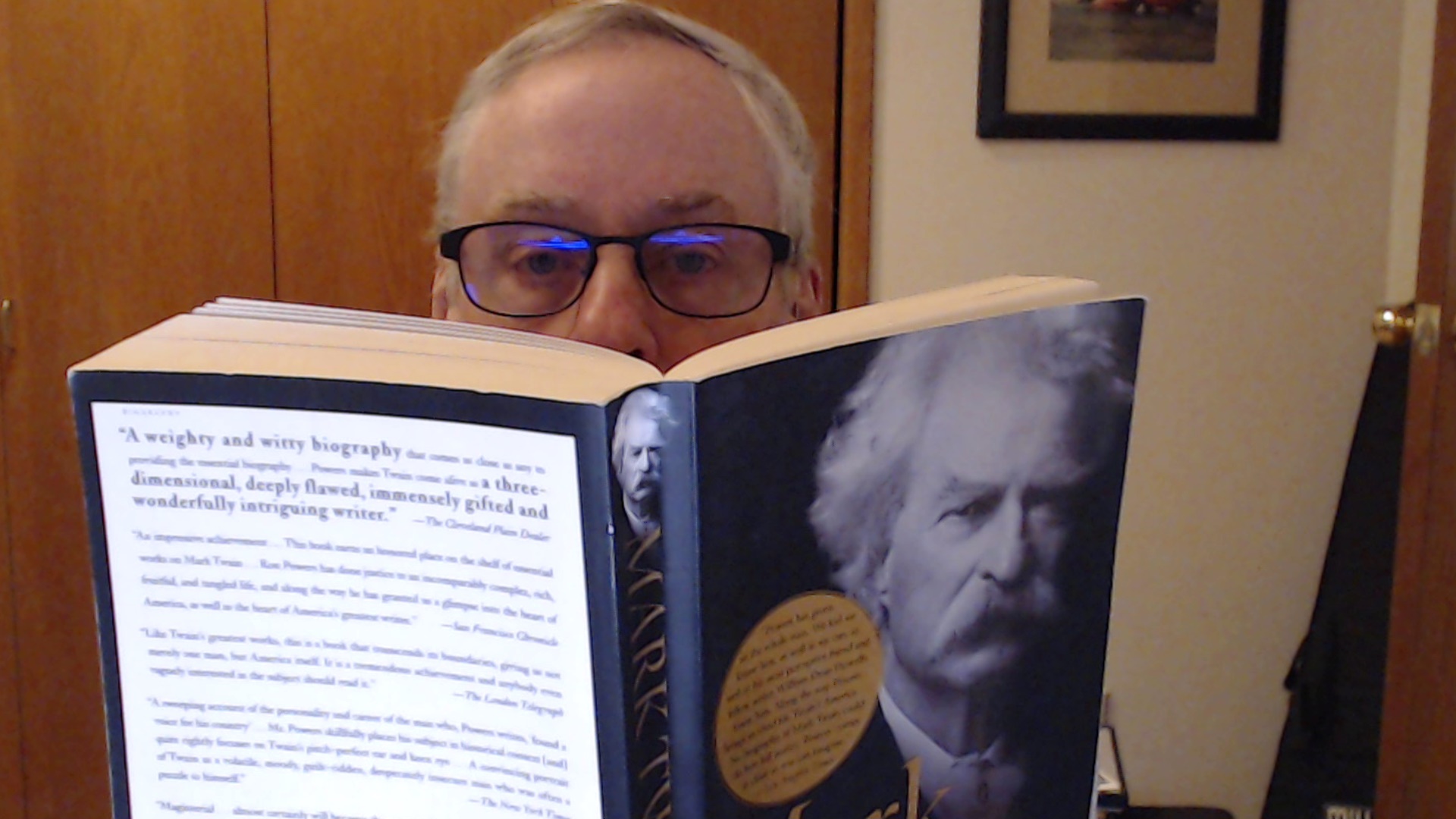
Spoiler alert: this has nothing to do with app modernization.
Frankly I'm a little ashamed to admit how many books are in my "to read" pile, which used to overwhelm my bedside table until Michelle moved them to my home office, where they are sitting now, in plain sight, not saying anything but radiating guilt like mad. I don't know about you, but it's just so convenient to read stuff on my phone and because I'm kind of a political junkie and we're living in crazy times politically speaking--result is the phone spends more time in my hand than books.
This year I (reluctantly) adopted a goal to put the damn phone down and read more books. And inspired by Bill Gates recent (and slightly weird) video about 5 books he recommended I thought I'd do something similar.
Therefore, here are my five favorite books from 2019.
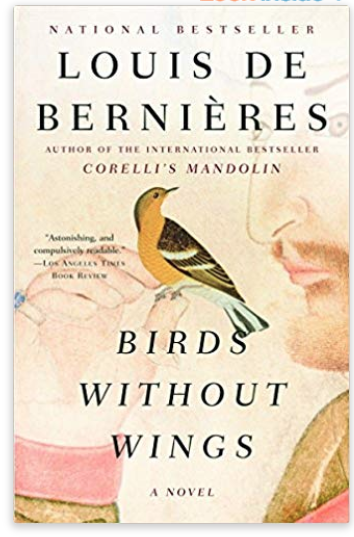
Birds Without Wings
My friend Jim (who contributes to my reading pile and thus my sense of self-loathing) sent over a copy of Louis de Bernieres' Birds Without Wings. Years ago I read Corelli's Mandolin which, while a truly forgettable Nicholas Cage movie, is a wonderful novel: I picked up BWW and couldn't put it down. At the end of the 19th century, Muslims, Jews, and Christians all lived together in perfect harmony in the Anatolian peninsula of Turkey, the seat of the Ottoman Empire. And just like in Fiddler on the Roof, some malign outside influence has to screw up what is otherwise a pretty sweet little village where everybody gets along. What happens, of course, is a non-stop series of violent eruptions including WWI and the Armenian genocide. Although this charming book deals with events that happened over 100 years ago it seems somehow quite contemporary. I mean, why can't we all just get along?
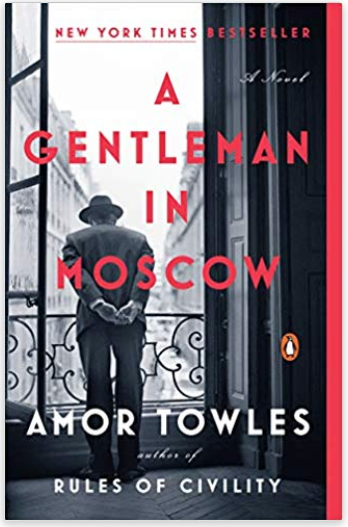
A Gentleman in Moscow
Having read nothing but fiction in my youth (mostly trashy but sometimes worthwhile), for many years I seem to have only been reading non-fiction. However, this year I made an effort to balance the scales (Harry Bosch! Jack Reacher!) and perhaps feeling that my choices (Harry Bosch! Jack Reacher!) weren't exactly expanding my horizons, I tried this Bill Gates' recommendation when my recent purchase at the local Amazon store offered me a free trial of Audible including two credits. I have a long commute and spend weekends futzing around in my woodshop and I like to listen to podcasts or audiobooks. This is a perfect choice for listening, with terrific narration by Nicholas Guy Smith.
In 1913 a Russian count, Alexander Ilyich Rostov, is arrested and convicted of being anti-revolutionary but spared the firing squad and is instead sentenced to house arrest inside the Metropol Hotel in Moscow. Evicted from his spacious suite where he has been living, he's placed in the attic in a small, forgotten room formerly used by servants. Rostov is a gentleman above all else, living according to a code that the new Soviet mindset doesn't seem to care about. As the world passes by outside the hotel, he remains both optimistic and cheerful, in spite of his new status as a "former person." So much of what I've been exposed to about Russia under communism is one dimensional; Towles neither glosses over the horrors nor does he show every apparatchik to be a monster (one high-up party official forces Rostov to dine with him monthly to understand America by watching Bogart films) but just people caught up in a system designed to bring out the worst in humanity. A gentle, soothing bath of a novel.
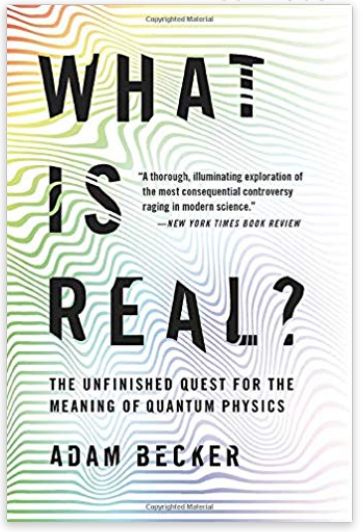
What is Real?
Quantum mechanics has always fascinated me, but my deeply flawed mathematical skills mean I have to try to understand it through dumbed-down descriptions from science writers. Like most people, I was taught the Copenhagen Interpretation, which--as described by Danish physicist Niels Bohr in 1920, that said quantum particles (like electrons) are neither here nor there but everywhere at once, and only settle down when you glare at them (ok, gross over-simplification).
What is Real? isn't so much a book about the arcane and deeply weird world of quantum mechanics but rather a story about physicists, dogma, peer pressure, and how science treats apostates. Becker chronicles how the so-called measurement problem created by the Copenhagen Interpretation was largely swept under the rug with a lot of scientific hand waving and foot shuffling, in spite of the fact that the measurement problem threatened to melt the entire edifice of quantum mechanics understanding down into a smoldering pile of rubble. The apostates in question came up with alternate theories which are (hard as it is to believe) even weirder than the CI, such as the "many worlds theory" and pilot waves. Many-Worlds was created by Hugh Everett at MIT in 1957 while he was still a grad student, and his seemingly-idiotic idea that the entire universe keeps replicating itself every time you have to make up your mind at Starbucks about whether to order that muffin was not taken seriously. In fact, Everett couldn't get the time of day from all the leading lights in particle physics and went on to become a successful entrepreneur but not a physicist. Sadly, his lifestyle choices* meant he didn't live long enough to see his theory come into its own as more and more physicists began to finally question the CI.
Adam Becker gives us a very human and readable account of how big science can close ranks around theories that have well known holes and shun anyone who questions the accepted dogma**. Along the way, he provides a perfectly understandable explanation of CI, the measurement problem, what Einstein really said, how the alternative interpretations are gathering support and what the even mean. The tiny world that we cannot see but which makes up everything we can is more inexplicable and paradoxical than anything cooked up in the imagination of people. And the history of science is (sadly) filled with radical pioneers who were savaged by their colleagues and all too frequently were only redeemed after they were long dead.
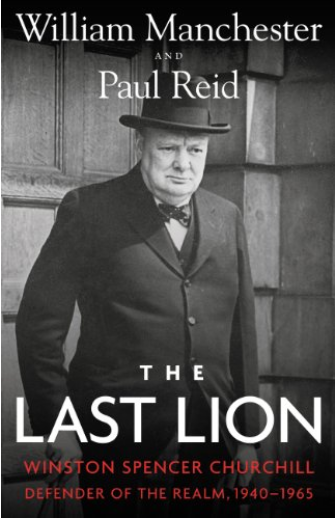
The Last Lion: Winston Spencer Churchill: Defender of the Realm: 1940-1965
Over the years I bumped into books by William Manchester, first when a co-worker loaned me The Arms of Krupp*** and later A World Lit Only by Fire. But the big treat was his three-part biography of Churchill, the first two volumes which were published in 1983 and 1988, respectively. The second volume takes us to the start of World War II, and I know I speak for everyone who read both that we were on pins and needles to get the final installment that would follow Sir Winston in his fight against Hitler.****
Alas, Manchester fell ill and was unable to complete the work before he died.
However, unlike some authors***** he wanted to please his readers and called on journalist Paul Reid to tackle the truly enormous task of finishing the longest and most complex of the three volumes (Manchester had only managed to write about 100 pages in addition to his notes).
Churchill was and remains a controversial figure, a man of a different era (he grew up under Queen Victoria at the peak of Britain's global empire) who can seem narrow-minded and racist today. Regardless, he was an extraordinary person who lived an extraordinary life and was at times a inventor, futurist, writer, painter, and bricklayer on top of a storied political career. Reid's account at times bogs down in details better left summarized, and the cast of characters and various British political intrigues can be mind-numbing to those of us who don't follow such things. Yet, on the whole, it's a worthwhile double-click on one of the most singular human beings to live in the 20th century.
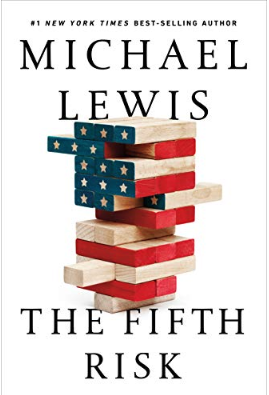
Michael Lewis is amazing. How many writers get a best seller, or a movie deal, let alone three movies (Money Ball, The Blind Side, and The Big Short) and countless best sellers? Lewis excels at taking seemingly boring stuff and telling a great--and important--story about it. The Blind Side is a story about poverty and race as much as it is about football. And The Big Short isn't just about the roots of the financial crisis, but about the rot at the core of our financial system and how even very smart people can fall into the herd mentality trap.
The Fifth Risk is Lewis' latest, and, as usual, he takes some ordinary part of our current world we all assume works fine and shows how it doesn't. In this case, he looks at what happens when one US administration leaves office and another comes in, specifically talking about the transition from Obama to Trump and how it affected two vast federal agencies: the departments of Commerce and Energy.
Lewis makes a strong case that our government could use better public relations insofar that it's full of super smart people doing great work but with virtually no public understanding or appreciation. The DOE, for example, is responsible for safeguarding all the nuclear weapons and facilities in the US. The Department of Commerce is responsible for predicting the weather. But rather than a droll set of statistics or org charts, Lewis drills down into the human stories behind both of these agencies like school lunch programs and why people live in areas that get hit by tornadoes. Along the way we meet some real everyday heroes: folks who forsake more lucrative professions to slog inside a government bureaucracy because the work is important and something they believe in.
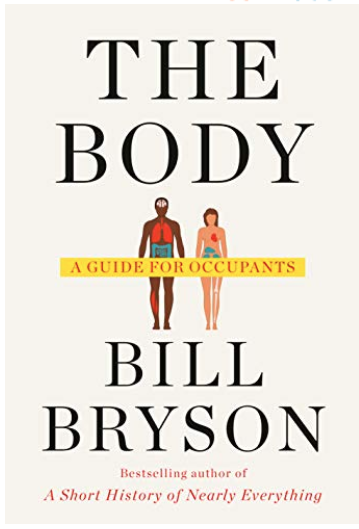
The Body (Miss Congeniality Award)
I know I said 5, but I had to throw this latest by Bill Bryson in if only for one anecdote which is too awesome not to include. Bryson takes us on a tour of the human corpus from head to toe and everything in between with enough detail to either fascinate or revolt, depending on how you regard such stuff. There's a slew of juicy throw-away tidbits (there's no scientific basis for the idea that anti-oxidants are helpful, but the man who first proposed the idea took them extensively and lived into his 90s; the "eight glasses of water rule" is rubbish; we get cancers constantly but most don't cause trouble; an ordinary, average-IQ adult man was discovered to only have 30 percent of his brain, the remainder of his skull comprising a large cyst;, and so on). He recounts the history of many diseases as well as discoveries of important drugs like penicillin and streptomycin (the latter discovered by a grad student who saw all the glory, credit, Nobel Prize, and patent royalties go to his professor; it would be almost 40 years before his contribution would be officially recognized).
These delightful insights pop up constantly throughout The Body, but the best is in Bryson's chapter near the end about longevity. Jeanne Louise Calment lived longer than anyone else (as far as we know). She was born in 1875 and died in 1997, aged 122 years 165 days. You can read about her here. Lived in an apartment in Arles for her entire adult life until she was 109 (when she moved into a nursing home), smoked two cigarettes a day until she was 117, broke her leg at age 100 but recovered fully, washed her own dishes and bathed herself.
But here's the best part.
In 1965, age 90--repeat 90 years old--having outlived both her daughter and grandson and thus with no heirs, she signed a contract with a gentleman named André-François Raffray for her apartment, with the stipulation that she could live there until she died, at which point it would be his. He also agreed to pay her 2500 francs (about 380 euros) for life.
You can probably already see where this is going.
Raffray paid for the next 30 years, by which point he had spent more than twice what the apartment was worth, and then died, no doubt out of pure frustration. However, business is business and contracts are contracts, so his family had to keep paying Calment until she died two years later.
To paraphrase one of my favorite movie lines, never start a land war in Asia or bet a 90 year old French woman on how long she's going to last.
Happy Holidays.
--------------------
*Dude liked to PARTY, smoked and drank heavily, and dropped dead of a heart attack at 51. His cremated ashes, per his instructions, were put out with the trash.
**Robert Pirsig abandoned his plans to become a scientist after considering the idea that all theories are based on hypotheses, there are an infinite number of hypotheses for any phenomenon, and thus could not all be tested. So he became a technical writer instead and wrote a pretty good book.
***Fun fact: Alfried Krupp, whose Ruhr Valley steel mills cranked out much of the rails used in the US transcontinental railroad, built his office directly over the horse stables and fitted a shaft to waft the smell of horse poo into his work space, since he found the odor inspiring. Takes all kinds, as my mother used to say.
****You Game of Thrones fans didn't invent the agony of waiting for a book that never seems to come, but you are going into the hall of fame for it.
*****See above.



